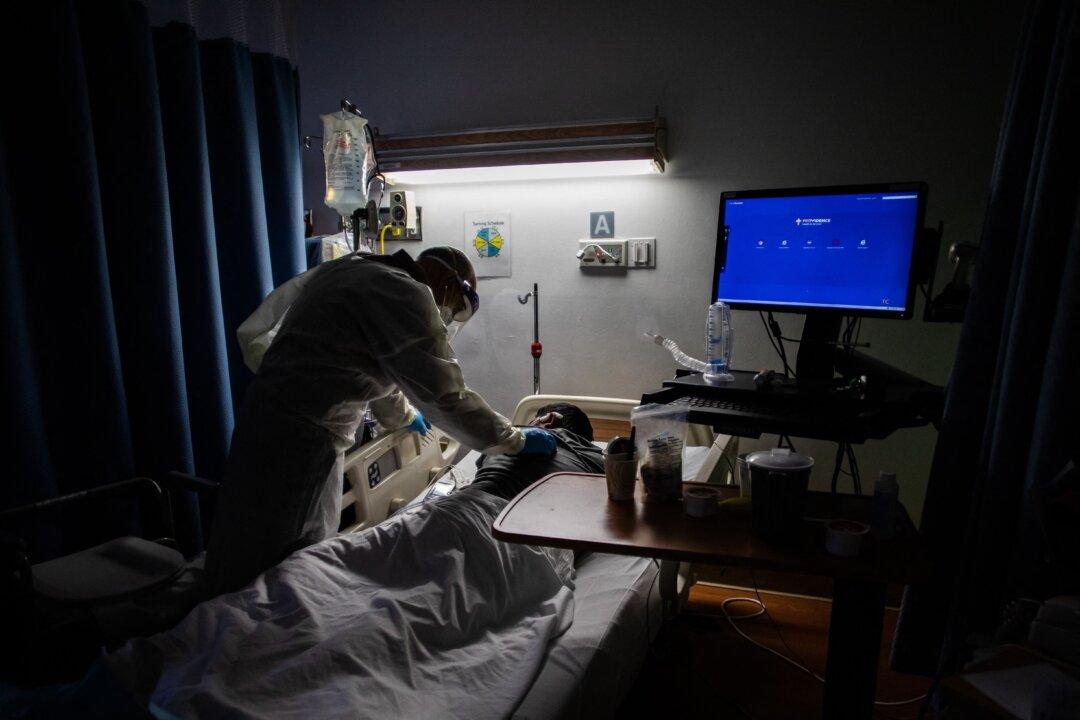The protection from vaccines against the virus that causes COVID-19 dropped following the emergence of the Omicron virus variant, but held up better against hospitalization, according to a new study.
While the Delta variant was still dominant in the United States, COVID-19 cases and hospitalizations among unvaccinated people were 3.8 times and 12.9 times, respectively, those among vaccinated people without a booster, researchers in California found.





